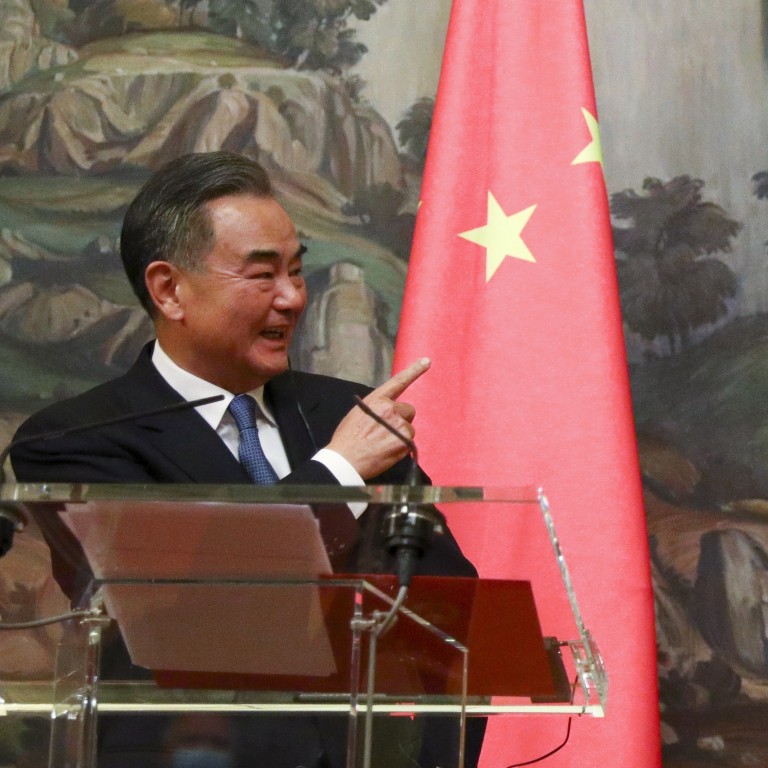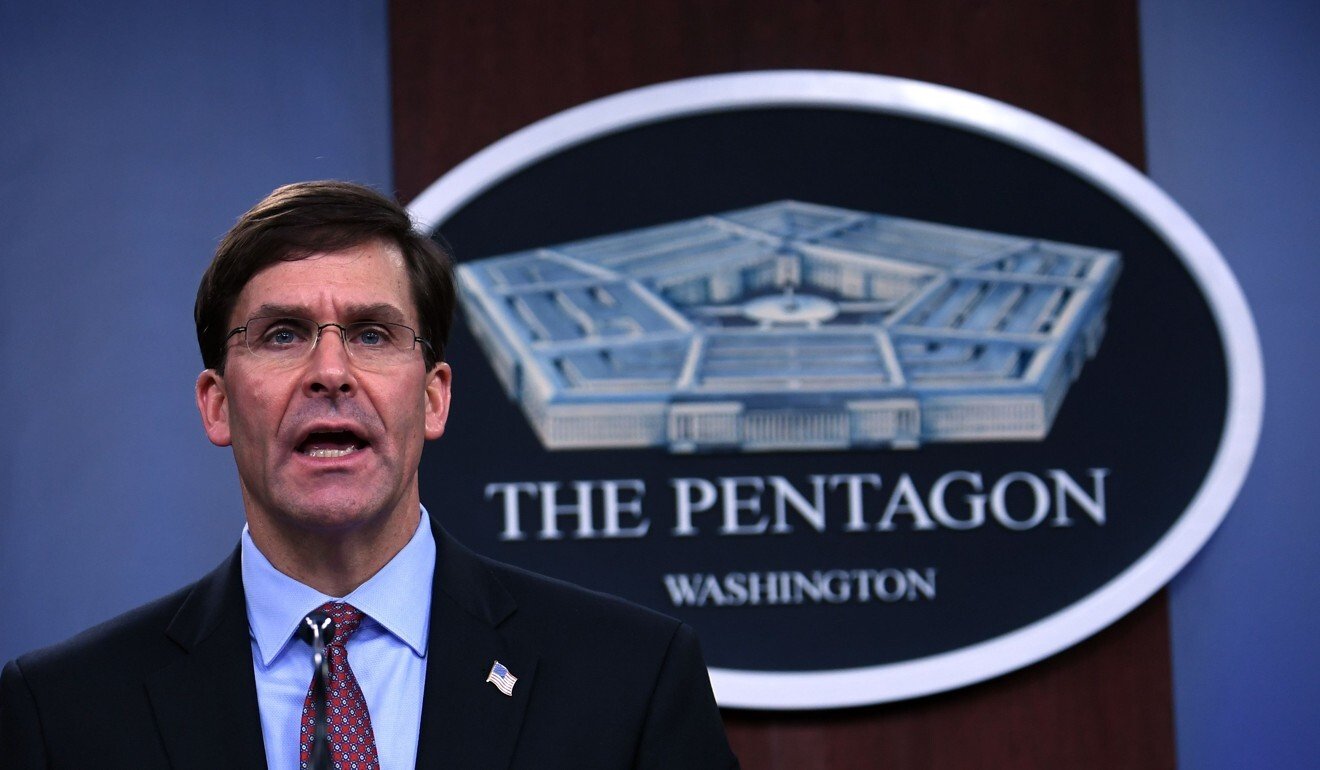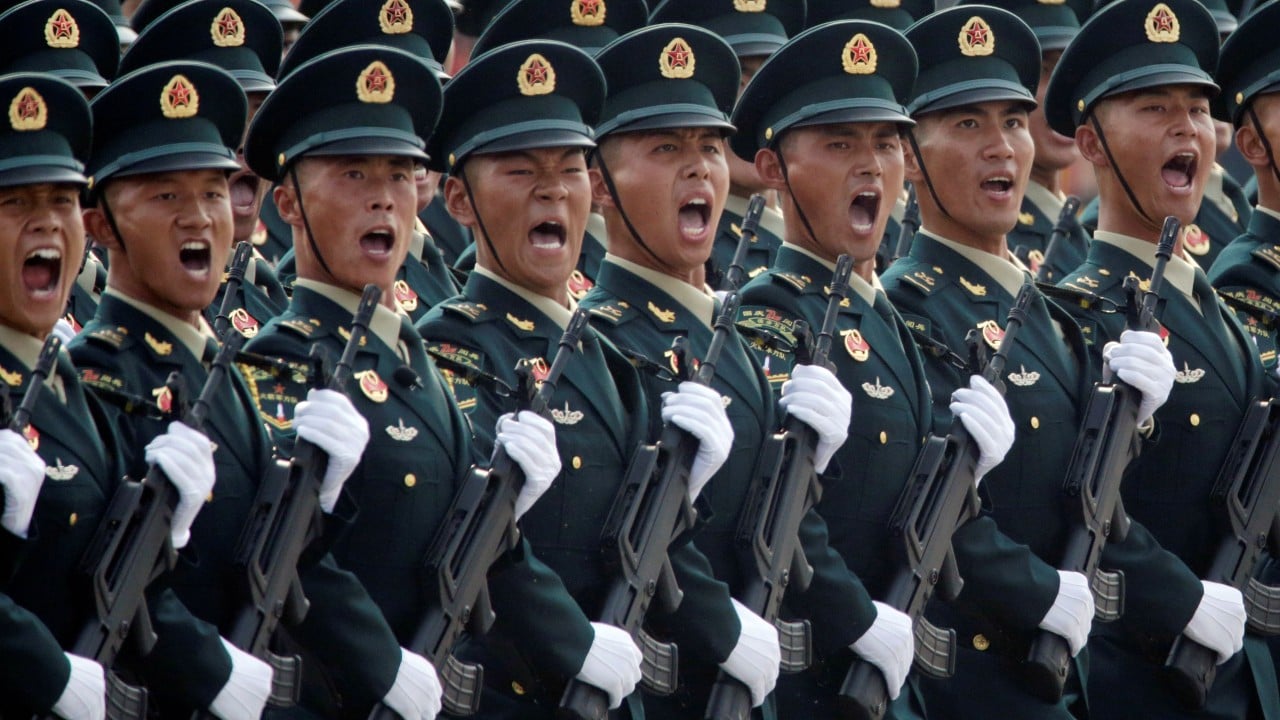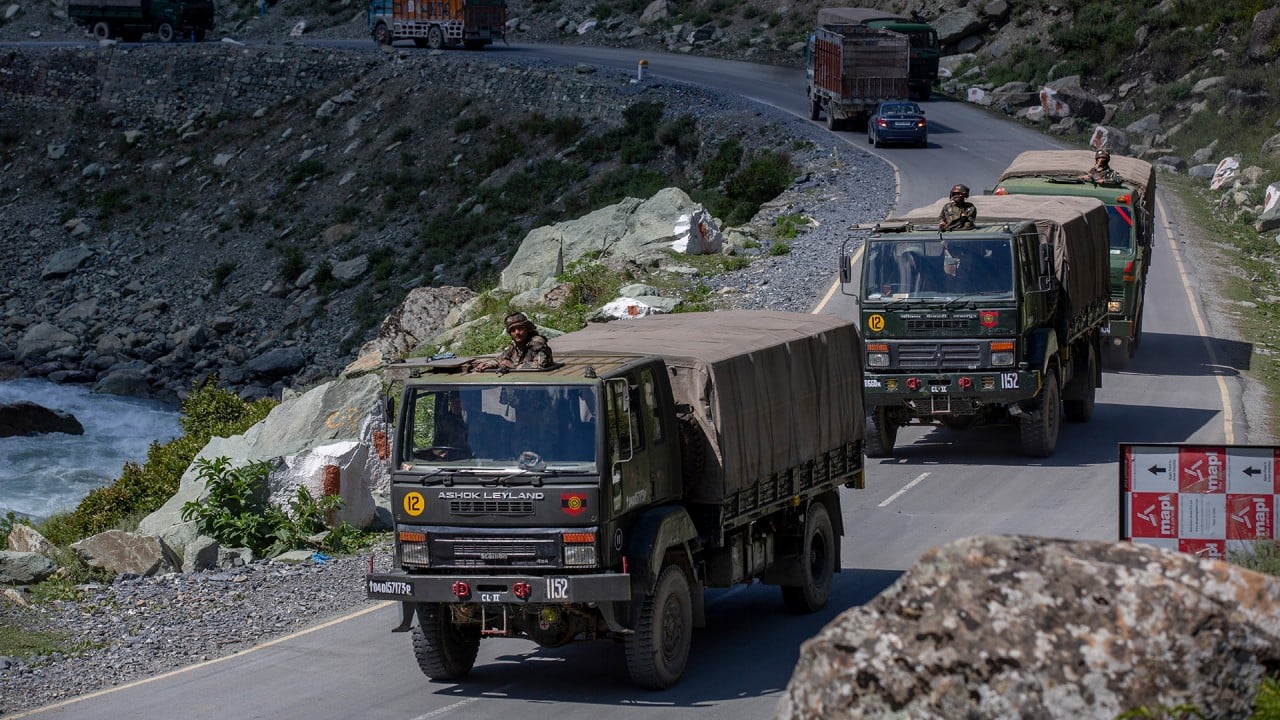
China looks to neighbours amid ‘new threats and challenges’ in the region
- Foreign Minister Wang Yi lashes out at ‘external forces’ and emphasises the need for Russia, Mongolia and Central Asian nations to work together
- Remarks come after American defence chief Mark Esper reiterated Washington’s plan to build a Nato-like alliance in the Indo-Pacific
China’s foreign minister has emphasised the need for Russia, Mongolia and Central Asian countries to step up cooperation in the face of threats and challenges posed by an emerging US-led multilateral security bloc in the Indo-Pacific.
Wang Yi’s remarks, published by official news agency Xinhua on Thursday, came after US Secretary of Defence Mark Esper reiterated overnight Washington’s plan to forge a Nato-like geostrategic alliance in the region, which he described as “the epicentre of great power competition with China”.
Wang told Xinhua the countries he visited “agreed that security and strategic coordination … represent an important part of all-round cooperation” with China, and highlighted the need to work together on security, defence and law enforcement. He said their relations had maintained good momentum but “turbulence in the world has intensified, and regional security is facing new threats and challenges”.

Without mentioning the US, he said “some external forces have intervened in the internal affairs of regional countries under various pretexts, and even tried to instigate a new round of ‘colour revolutions’”.
“To retain a unipolar hegemony, they fabricated different kinds of lies to smear emerging economies including China and Russia. They even coerce countries into picking sides as part of their attempts to wage the so-called new Cold War,” Wang said.

04:12
Are Xi Jinping’s China and Donald Trump’s US destined for armed conflict?
Analysts said Wang’s tour of China’s northern neighbours and criticism of the US reflected the changed reality in the post-coronavirus world, as Beijing grapples with international pushback over its diplomatic overreach while its relationship with Washington is in free fall.
“Against the backdrop of a full-fledged decoupling between China and the US – which looks unlikely to be reversed any time soon – China has a lot to learn about how to manage this unfolding crisis,” said Li Lifan, an expert on Russia and Central Asia at the Shanghai Academy of Social Sciences.
Washington has upped the ante in recent months, piling pressure on Beijing over the South China Sea, Hong Kong, Taiwan, Xinjiang and Chinese tech firm Huawei Technologies, and ramping up efforts to build an international coalition against China.
“Wang’s trip was part of China’s efforts to repair and maintain ties with our neighbouring countries in a bid to avoid further isolation,” Li said.
He added that trade and investment remained Beijing’s most effective tools to mend fences and secure the country’s western borders amid the prolonged dispute with India.
New Delhi is part of the US-led security alliance with Australia and Japan that Beijing has called an “anti-China front line”.

02:53
China-India border dispute: China frees detained Indians after sides agree to ‘quickly disengage’
In the Xinhua interview, Wang also highlighted ties with Moscow – the two countries have drawn closer as both come under increasing political and economic pressure from Washington.
“As the world is entering a period of turbulence and change, strong China-Russia relations are of greater significance in sustaining regional and world peace and security,” he said.
Calling the friendship between China and Russia “unbreakable”, Wang said their strategic cooperation could withstand external changes, and the bullying and containment tactics used by “certain countries”.
Despite their rivalry in Central Asia and Mongolia – traditionally seen as Russia’s sphere of influence – and diverging interests on issues such as the China-India border dispute, analysts said there was an overriding need for the two countries to step up cooperation given the threat of a new Cold War.
“The US attempts to drive a wedge between China and Russia have not been successful so far,” Li said.

